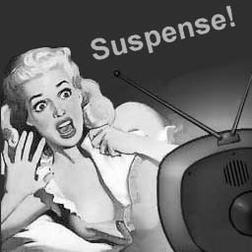A Novel Is Not A Sum Total of Its Parts
This is our last post wrapping up the year’s course on The 12 Key Pillars of Novel Construction. I hope you now have a toolbox full of great building tools, as well as a handle on how to use them to build strong pillars for your novel. The twelve pillars we’ve looked at are foundational to your story; they hold it up. If any of these pillars are weak, your novel will fail. It’s as simple as that.
I spoke last week about approaching the writing of a novel in a holistic manner rather than piecemeal. In other words, there is a big problem in tackling a huge undertaking such as a novel by looking at the pieces as separate components that can be developed apart from all the others.
A Novel Is Not a Sum Total of Its Parts
Many writing craft books teach this piecemeal approach. They discuss how to write a good plot, or how to come up with tight dialog, or how to create interesting characters. Yes, all these components are part of a novel. But just because there are twenty-six letters in the English language, that doesn’t mean you can combine them any which way and you’ll end up with the great American novel. Novels, like houses or skyscrapers or jet planes, must have all their parts working together smoothly and for one ultimate purpose—to perform in the manner intended.
When you begin to kick around ideas for a novel, it’s like rummaging through a barrel of mechanical parts. You might pull out a few dozen nuts, bolts, wires, spark plugs, and metal plates. You might know the many uses for each part, and if you took the time, you could craft some cool-looking sculptures. Maybe even something functional. In junior high, I learned how to wire a Masonite board so that if I touched two wires together, a lightbulb lit up (I thought I was pretty clever).
But we writers don’t want to just throw a bunch of parts together and hope we end up with a neat-looking novel. We want a novel that holds together on every level. This is the biggest problem, hands down, that I see in the hundreds of novels I critique every year. Most of them are like these creative building projects. There seems to be some idea or theme or purpose to them, something hinted at, but when I stand back (or stare up close), I can’t see the forest for the trees. There are a lot of trees, some very pretty, but no forest. No true, clear, compelling, powerful story.
What I’m saying is a novel is not a sum total of all its parts. Not by a long stretch. This is why I’ve emphasized spending time brainstorming and mind mapping your plot, characters, setting, themes—all your elements. And why I urged you to work on all four of the key corner support pillars of your novel together until all four are tightly knit.
The Perils of Working Piecemeal
Here’s why. I see a lot of novels that have a great premise or plot idea. They might even have a terrific concept with a kicker. But . . . there isn’t a clear protagonist. I have no clue who the story is about (for a novel must be about someone!). Or I may see there’s a protagonist, but most of the time, she has no goal, ever, in the book. I keep waiting, waiting, waiting . . . and by the end of the book, I shake my head. What did that character want? Why were they even in the story? Oh, so the plot could be shown. Ugh.
And then, there are novels with a great concept and a protagonist with a terrific goal, but there is zilch tension and the pacing drags and the book is torturous to read to the end. Why? Because there are no stakes. No central conflict. You can have a character with a “lofty” goal of wanting to climb Mt. Everest. Maybe he’s a really intriguing character—funny, original, empathetic. But the book contains little to no conflict. Of course, climbing Everest has inherent high stakes—our hero could lose his life, and that risk brings tension with it. And maybe there’s a snowstorm or an accident, but overall there is no central conflict. And without that, the book reads like a string of events, ups and downs, with no real purpose to it. Which brings me to . . .
Theme. For theme is the glue that binds all those three elements: the concept with a kicker, the protagonist with a goal, and the conflict with high stakes. Theme is the heart of your story, and it speaks of the heart of your protagonist, who must embody the theme. If your protagonist’s goal for that novel is only to get to the top of Everest, that isn’t going to ensure the book will be riveting. It might be a great novel if it has amazing writing and interesting characters who engage in clever dialog, with some conflict. But even with all that, if there isn’t a point to the story, it will fall a bit flat. It may get some nice reviews and garner some readers who really enjoyed the book. But it could be so much better, so much more, if themes were developed that wove through the novel and were intrinsic to the character’s core need.
Fasten All Those Components Together
This is what I mean by holistic. Working all the pillars together, as if using fasteners between posts in a building to add additional sturdiness.
When we built our bed and breakfast on a cliff over the ocean back in 1989 in California, we made it through plan check just fine—until the county building department decided we needed to add additional support for earthquake safety. That meant an added cost of nearly twenty thousand dollars in metal struts and fasteners to bolt to the posts and studs throughout. After finishing construction, our building contractor shook his head and said, “Well, now you can bulldoze this house off the cliff, and when it hits the beach two hundred feet below, it’ll stay in one piece.”
Were we glad we had to cough up that much money for a bunch of metal strips and bolts? No—but we changed our tune when over the next ten years we got hit with some big earthquakes—including two that destroyed sections of nearby towns and freeways (the inn was situated on the biggest earthquake fault in California). Our inn remained unscathed. I think we sustained a few hairline cracks in a ceiling or two. But that’s all.
Wouldn’t it be nice if after you finish writing your novel and publish it, you only got an occasional “hairline” crack [read; negative review]? If you make sure all your pillars of novel support are strong, you can be sure your novel will hold up.
Now What?
If you’ve been careful in your construction, what then? Is there any other way to be sure you haven’t missed something?
Sure—get a professional critique. Choose an editor who really has a handle on novel construction, preferably someone who has written and successfully published some novels (although that’s not necessarily essential).
Keep in mind that line editing (correcting grammar and punctuation) is not the same thing. Just having a content edit, or even a developmental edit that digs deep into your writing, is not the same as having your “big picture” elements examined. I believe every novel can benefit from a professional critique—even those of best-selling authors.
A number of successful authors have me edit and critique all their novels. I can honestly say I have yet to come across the perfect novel that has not needed some work, that did not have some problematic areas that needed revisiting, or that had some plot issues that needed resolving. I keep waiting for the day that perfect manuscript will cross my desk—one that I won’t have to mark up at all. That I can gaze at, open-mouthed in astonishment in the realization that it is perfect, flawless, and ready to publish. I haven’t seen it yet. I know mine sure aren’t perfect, and that’s why I have my trusted author friends critique my books after I write the first draft (friends who will be tough!).
So think about having your work critiqued . . . before you have it line edited. Don’t put pretty icing on a yucky cake. If you really want to be a great novelist and write those books that will stand up under scrutiny and the test of time, be willing to invest time and money into creating a beautiful product.
There is nothing more satisfying than holding your novel in your hand and being proud of this magnificent story you’ve built. I wish that wonderful, joyous experience for all of you, and hope the new year will be one chockful of writing . . . and writing well!
Our New Course!
I’m excited! Next Wednesday we start a wholly unique course that will be sure to help you with your writing. Instead of writing a whole course for the year all by my lonesome, I’ve enlisted four top editor/authors who are going to be tackling the fatal flaws of fiction writing. Every single post is going to have before and after passages, so that you can easily see not just what the major mistakes of fiction writing are, you will also see ways to fix them. There is nothing more helpful than getting concrete examples of what works and doesn’t work and how to fix the problems.
So join me for a great new year. Be sure to subscribe to the blog so you won’t miss any posts, and share some of your thoughts in the comments on how you benefited from The 12 Key Pillars of Novel Construction. I’ve appreciated all the support and comments over the year! Now, on to 2015!
Inspection Checklists:
Inspection Checklist 1-concept with a kicker
Inspection Checklist 2-protagonist with a goal
Inspection Checklist 3-conflict with high stakes
Inspection Checklist 4-theme with a heart
Inspection Checklist 5-Plots and Subplots in a String of Scenes
Inspection Checklist 6-Secondary Characters with Their Own Needs
Inspection Checklist 7-Setting with a Purpose
Inspection Checklist 8-Tension Ramped to the Max
Inspection Checklist 9-Dialog Compressed and Essential
Inspection Checklist 10-Voice Unique for Each Character
Inspection Checklist 11-Writing Style Concise and Specific
Inspection Checklist 12-Motifs for Cohesion and Depth
Photo Credit: Elena Karelova via Compfight cc











Great advice – I am keeping your inspection checklist forever. Most intrigued by your B&B on a cliff over the ocean. Would love to visit it!! All good wishes for the new year – thank you again for sharing your expertise and writing wisdom.
You’re welcome. I’ll get the book and workbook out in March (hoping) so you’ll have ways to work on all these points. It’s been a fun year with this series and glad it helps! The inn was sold about eleven years ago but I believe it’s still being run–a long, painful story in my past.
Wow, this year went fast. Your advice has been fantastic. I always look forward to your insights and examples. I hope what I’ve learned from you pays off. Can’t wait to read what you have in store for us in 2015. Happy New Year!
Thanks so much, Debra. I’m excited to start a new year. This one has been productive and fulfilling on my end, and it’s been a joy to see so many writers excited about their creative work. wishing you a happy New Year back!
Thank you for such a wonderful course that helped so much in helping me learn how to get started! I appreciate all of the hard work that you put into it, and I’m sure many books will be published, and read, that may not otherwise have made it. I look forward to your new course as well. HAPPY NEW YEAR!! I wish you all the best for a prosperous and joyful 2015!
Great advice. 😀
I think it really helps to have a few experienced critique partners too to help you strengthen a storyline and a couple of insightful editors to work with before you self-publish or send your work to agents or editors. It is easy to have a plot that gets off course.
Thank you so much for your checklists, they are an invaluable tool and as soon as I read the first one I was prompted into thinking more in the right direction. I am very grateful for such an amazing and cost free resource.
Thanks, Melanie, they’ve been fun to create. I’m putting the workbook together now and there will be a ton more prompts and ways to explore ideas. I think it will be an invaluable resource to go with the book. Watch for them in March!
Thank you so much for everything. I follow every single one of your posts and absolutely love the checklists. You’ve really helped me this year, not just for the critique but for the amount of fantastic information you give to all your readers. Here’s to 2015. Thanks again!
You’re welcome! I’m glad to help and hope this new year’s material will also help you with your writing!
Great post, and I love the checklists–what a great way to evaluate your story before you start writing, to be sure that all the pieces are there! Thank you for making these available. 🙂
I review books myself and although I’ve read many I liked, I agree with there being little tension in the story. When I wrote my own book, it had to run through beta readers multiple times. Every time, this was my critique, you need more action here, more humor there. The truth is I wonder if many writers are utilizing beta readers.
Many thanks once again for taking the time to craft such a helpful blog. One of my writing groups will be using your 12 Key Pillars as a study guide in the coming weeks and I plan to use your Writing the Heart of your story in another group. Can’t wait for this year’s installment!
Thanks for the great checklists! Looking forward to the new course!
Happy New Year, everyone. 🙂